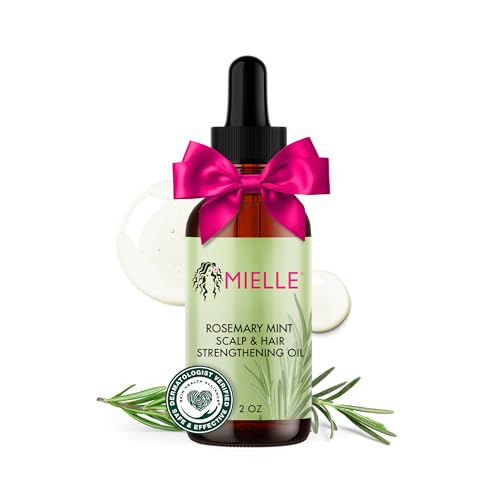Hair oiling has been a beauty staple for ages, dating back to ancient Ayurvedic practices and Indian traditions. Today, driven by sleek celebrity hairstyles and the increase in COVID-19-related hair loss, many are turning to hair growth oils.
Dr. Afiya Mbilishaka, founder of PsychoHairapy, says, “Best Hair and Scalp oils can nourish the scalp and hair follicles, promoting healthy hair growth.” Oils like coconut, castor, and argan are known for their natural properties, helping to retain moisture and boost hair health.
Yet, while these oils can make your hair look and feel fuller, healthier, and stronger, they aren’t a magic bullet for rapid growth. Dr. Angelo Landiscina, a board-certified dermatologist also known as Derm Angelo, notes that only one study found rosemary oil comparable to 2% minoxidil (a popular hair growth treatment like Rogaine) after six months of use. With limited research, there’s no solid proof that hair oils speed up growth significantly. However, they do support healthier hair and scalps, which can lead to thicker and fuller locks over time.
So, while hair oils won’t give you Rapunzel-like hair overnight, they do offer real benefits for healthier, more vibrant hair. Give them a try and see the difference for yourself!
Our Top Picks
| Image | Product | Feature | Price |
|---|---|---|---|
|
Best Overall
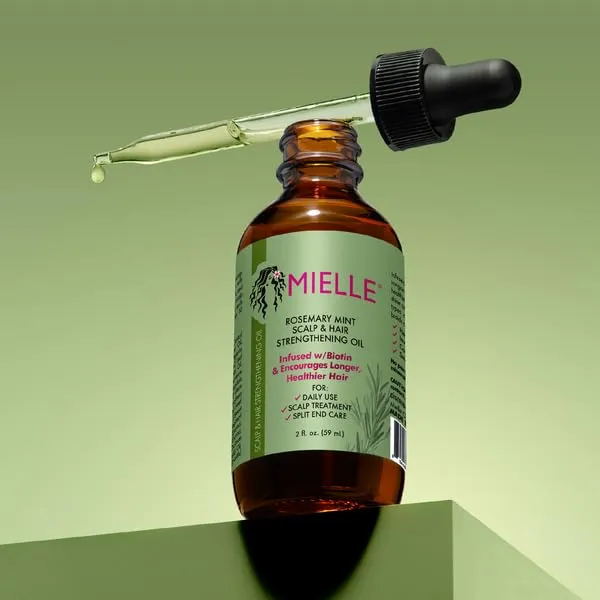
|
Mielle Organics Rosemary Mint Scalp & Hair Strengthening Oil
|
|
Check Price |
|
Best for Dry Scalp
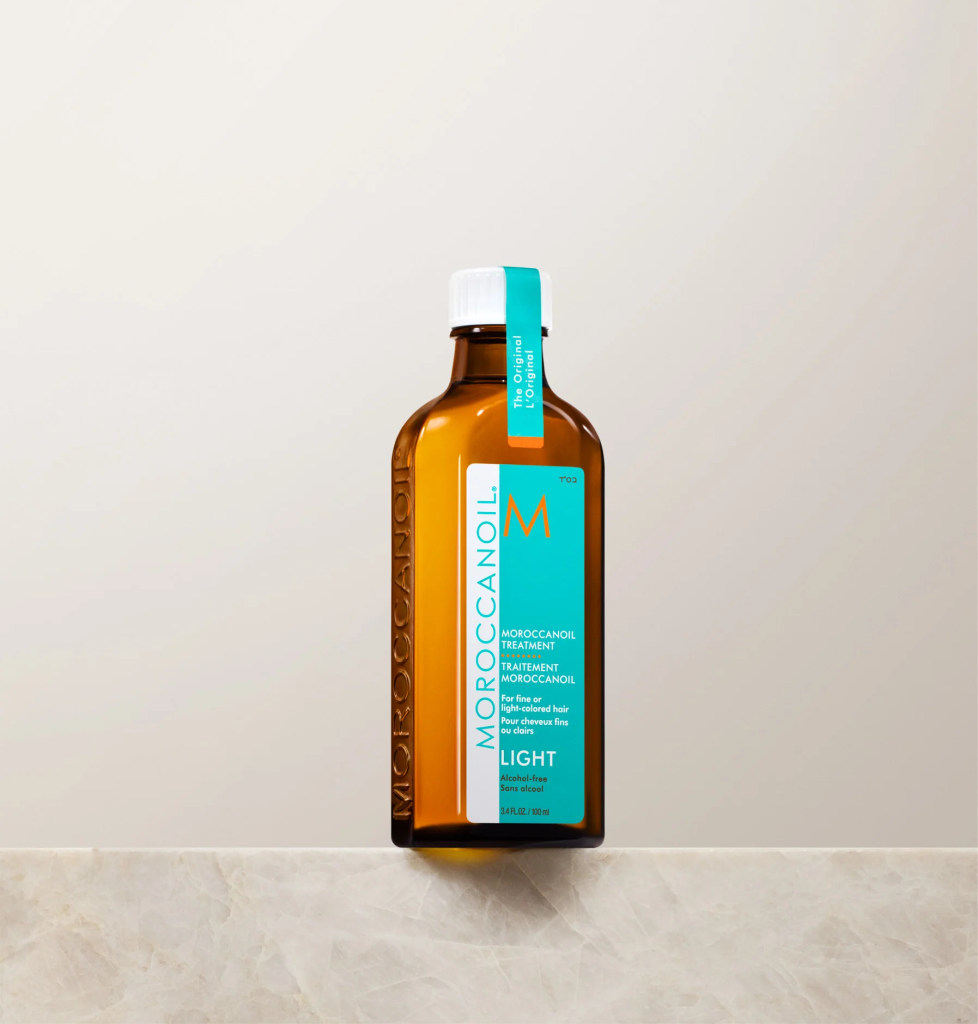
|
Moroccanoil Dry Scalp Treatment
|
|
Check Price |
|
Best for Heat Styling
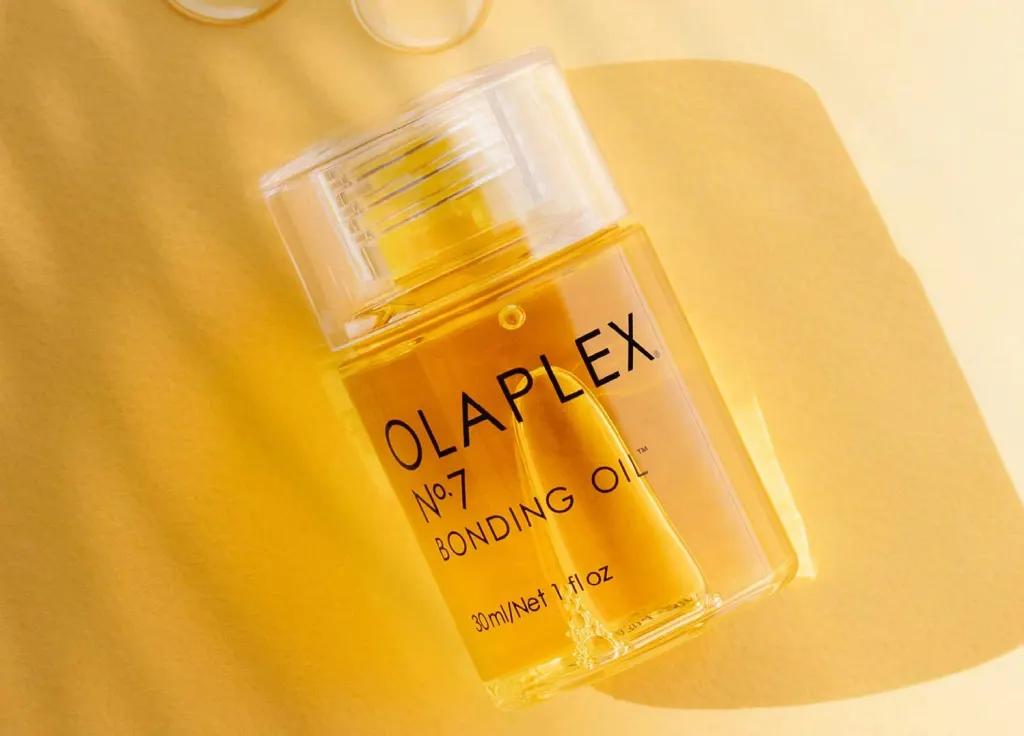
|
Olaplex No.7 Bonding Oil
|
|
Check Price |
|
Best for Shine
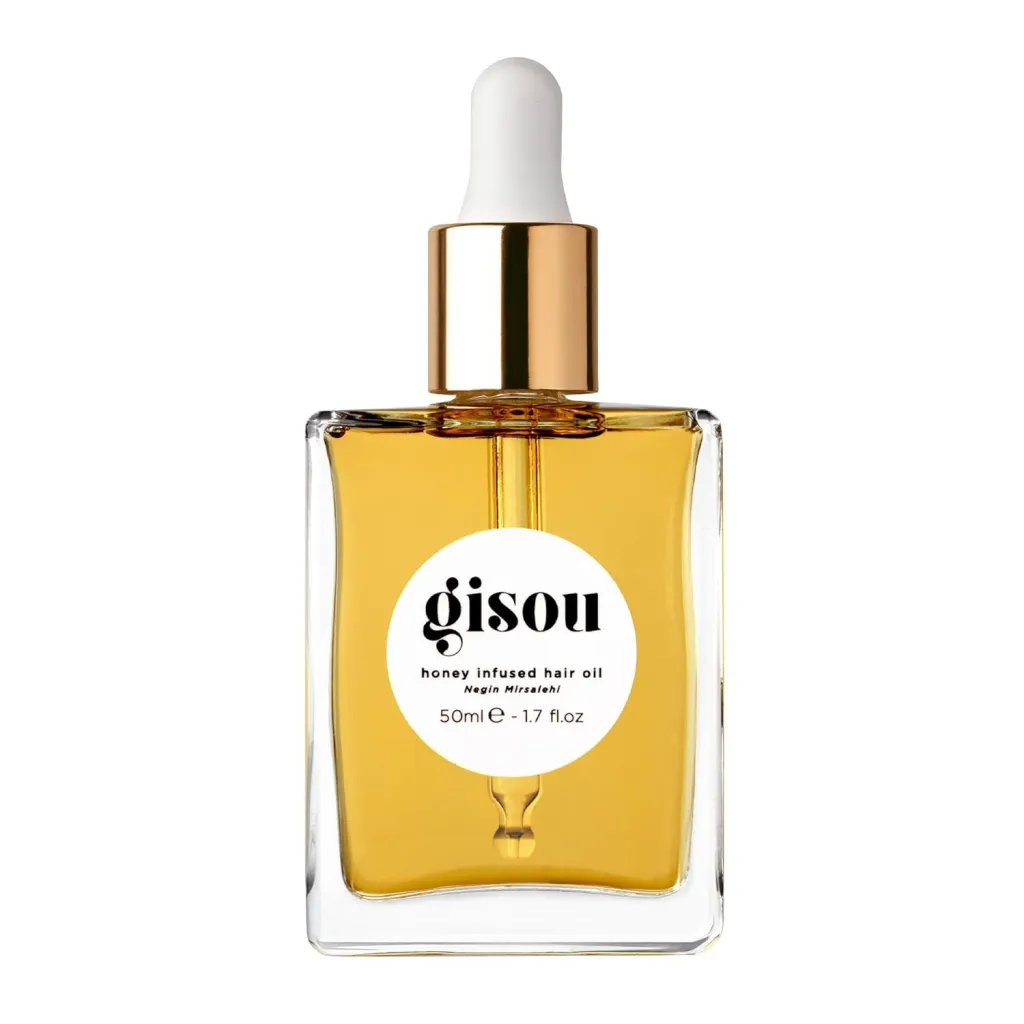
|
Gisou Honey Infused Hair Oil
|
|
Check Price |
1. Mielle Organics Rosemary Mint Scalp & Hair Strengthening Oil
Are you looking for a natural way to nourish and strengthen your hair? Do you want to enjoy the benefits of rosemary, mint, and biotin without weighing down your locks? If so, you’ll love Mielle Organics Rosemary Mint Scalp & Hair Strengthening Oil!
This certified organic oil is designed to invigorate your scalp and hair, promoting healthy growth, shine, and elasticity. It contains rosemary, which has antioxidant, anti-inflammatory, and anti-fungal properties that improve scalp health and hair strength. It also contains mint, which stimulates blood circulation and refreshes your senses. And it has biotin, which nourishes your hair follicles and prevents breakage.
Mielle Organics Rosemary Mint Scalp & Hair Strengthening Oil is safe for all hair types, including low and high porosity, chemically-treated, braided, and weaved hair. It is lightweight and non-greasy, so you can use it as part of your daily routine or as an intensive treatment. Just apply a few drops to your scalp and massage gently, or use it as a hot oil treatment for extra moisture and softness.
2. Moroccanoil Dry Scalp Treatment
Moroccanoil Dry Scalp Treatment is a soothing and nourishing solution that helps balance and revitalize your scalp. It is enriched with lavender, geranium, and argan oils, which moisturize and calm your skin, as well as salicylic acid, which gently exfoliates and removes flakes.
The treatment also improves blood circulation and stimulates hair growth, leaving your scalp healthy and your hair shiny. You can use it before shampooing or as a leave-in treatment, depending on your needs. Moroccanoil Dry Scalp Treatment is suitable for all hair types and is free of sulfates, parabens, and phthalates.
3. Olaplex No.7 Bonding Oil
Olaplex No.7 Bonding Oil is a revolutionary hair styling oil that not only adds shine, softness, and color vibrancy, but also repairs damaged and compromised hair. It is the first oil of its kind that contains patented OLAPLEX Bond Building Technology™, which works at a molecular level to restore the hair’s strength, elasticity, and resilience. Olaplex No.7 Bonding Oil also provides heat protection up to 450°F, reduces frizz and flyaways, and enhances the performance of other styling products.
Whether you have fine, thick, curly, or straight hair, Olaplex No.7 Bonding Oil will transform your hair into its best version. Just apply a few drops to damp or dry hair, style as desired, and enjoy the results. Olaplex No.7 Bonding Oil is vegan, cruelty-free, gluten-free, nut-free, paraben-free, phthalate-free, phosphate-free, and sulfate-free. It is suitable for all hair types and colors, and is compatible with other Olaplex products.
4. Gisou Honey Infused Hair Oil
Gisou Honey Infused Hair Oil is a luxurious hair care product that nourishes, repairs, and protects your hair with the power of honey. This oil is enriched with Mirsalehi Honey, a natural ingredient sourced from the Mirsalehi Bee Garden, which is rich in vitamins, minerals, and antioxidants. The oil also contains a blend of coconut oil and other botanical oils that moisturize, condition, and smooth your hair.
Whether you use it as a pre-styling, finishing, or overnight treatment, Gisou Honey Infused Hair Oil will leave your hair soft, shiny, and frizz-free. Suitable for all hair types and textures, this oil is cruelty-free, paraben-free, and sulfate-free.
What to Look for When Buying a Hair Oil
Ingredients
Look for formulas with nourishing ingredients like squalane, plant oils, and coconut oil. Hairstylist Davey Matthew recommends jojoba, grape seed, argan, and castor oils for sealing and adding shine and smoothness. Babassu, shea butter, coconut, and olive oils are excellent for strengthening and moisturizing the hair. Avoid fragranced formulas if using on the scalp, as fragrance can irritate the skin. Also, steer clear of oils with high concentrations of silicone. Matthew warns that “silicones can block moisture, dehydrating the hair.”
Texture
Choosing a hair oil with the right texture is crucial. For fine hair, opt for a thin, lightweight oil to prevent greasiness. For thick hair, a richer formula might be necessary, especially for dry or damaged strands.
Hair Porosity
Consider your hair’s porosity. Hair porosity affects how well your hair absorbs moisture. Matthew explains, “The more open the cuticle layer, the more porous your hair is.” High porosity hair benefits most from penetrative oils, while low porosity hair thrives on sealing oils like jojoba, grape seed, argan, and castor oils.
Product Size
Size matters. If you plan to use hair oil regularly on your scalp or lengths, opt for a value size product. If using sparingly, a smaller size should suffice.
By understanding these factors, you can choose the best hair oil for your needs, ensuring healthier, stronger, and more vibrant hair.
How to Pick the Right Hair Growth Oil
Choosing the right hair growth oil can feel like navigating a maze. Let’s break it down to make your selection easier.
Vet Your Ingredients
Just like with any hair product, the ingredients in your hair growth oil are crucial for fostering healthy growth.
- Rosemary Oil: The only oil proven to significantly boost hair growth, similar to minoxidil.
- Argan Oil: Known for its ability to nourish and hydrate without leaving a greasy residue.
- Coconut Oil: Rich in antioxidants, it protects hair from environmental damage.
- Grapeseed Oil: Offers similar antioxidant benefits as coconut oil.
- Jojoba Oil: Mimics the natural oils produced by the scalp, regulating oil production.
- Tea Tree Oil: Soothes itchy or dry scalps with its anti-inflammatory and anti-fungal properties.
- Peppermint Oil: Rich in antioxidants and great for soothing irritated scalps.
Avoid mineral oils and silicones as they can clog pores and cause product buildup, leading to scalp irritation and hair loss. For those with acne-prone skin, oils might not be the best choice, as they can exacerbate breakouts. Instead, consider a lightweight serum like Vegamour’s offering.
Target the Cause of Your Hair Loss
Hair thinning can be caused by various factors, from stress to diet changes, or even the products you use.
Product buildup, from things like dry shampoo and mousse, can suffocate the scalp, leading to shedding and slow growth. Washing your hair only once or twice a week is generally safe, but letting products sit on your scalp for too long can cause issues.
Sometimes, underlying health conditions like androgenic alopecia (pattern hair thinning), anemia, certain medications, or nutritional deficiencies can lead to hair loss. If you’re unsure why you’re shedding more than usual, consult your doctor for advice.
Follow Through
For optimal results, use a scalp massager before or after oiling. This encourages nutrients to penetrate deeper into your scalp, promoting microcirculation and bringing freshly oxygenated blood to the surface. Increased blood flow means increased nourishment, leading to happy, healthy hair.
Consider the Ceremonia Scalp Power-Duo, which includes both an oil and scrubber in one package.
Finally, lifestyle changes can also influence hair growth. Maintain a healthy diet rich in protein, vitamins, and minerals, stay hydrated, exercise regularly, and follow proper hair care practices.
Frequently Asked Questions
How do you apply hair oil?
Always follow the manufacturer’s instructions, but generally, start with the ends and work your way up, avoiding the roots unless the product is designed for the scalp.
When should you apply hair oil?
Hair oils can be applied to wet or dry hair. For damp hair, it helps with manageability and smoothness. For dry hair, it adds shine and tames flyaways.
Can you use a hair oil on oily hair?
Yes, but avoid the scalp to prevent greasiness. Focus on the lengths and ends to address dryness and damage.
How much does the average person’s hair grow in a year?
On average, hair grows about half an inch per month, totaling six inches per year. This can vary based on factors like age, gender, genetics, and overall health.
Can hair growth oil increase the thickness of your strands as well?
Hair growth oils can improve hair density and strength but won’t change the actual thickness of individual strands. They help maintain more strands on your head, giving a fuller appearance.
Do these oils work on all hair types, or some better than others?
Hair oils benefit overall hair health but aren’t one-size-fits-all. People with fine or thin hair may see more benefits compared to those with thick hair. Porosity also plays a role; high and medium-porosity hair absorbs oils better than low porosity hair.
How often should you apply hair growth oil to see results?
Follow the specific product’s instructions. Some oils are for daily use, while others should be used less frequently to avoid greasiness and buildup. A slicked-back bun can help manage excess oil while nourishing your hair.
When should you start to see results from using a hair growth oil?
Results vary, but with routine use, you should notice an improvement in a few weeks to months. Stick to a consistent routine for the best results.

